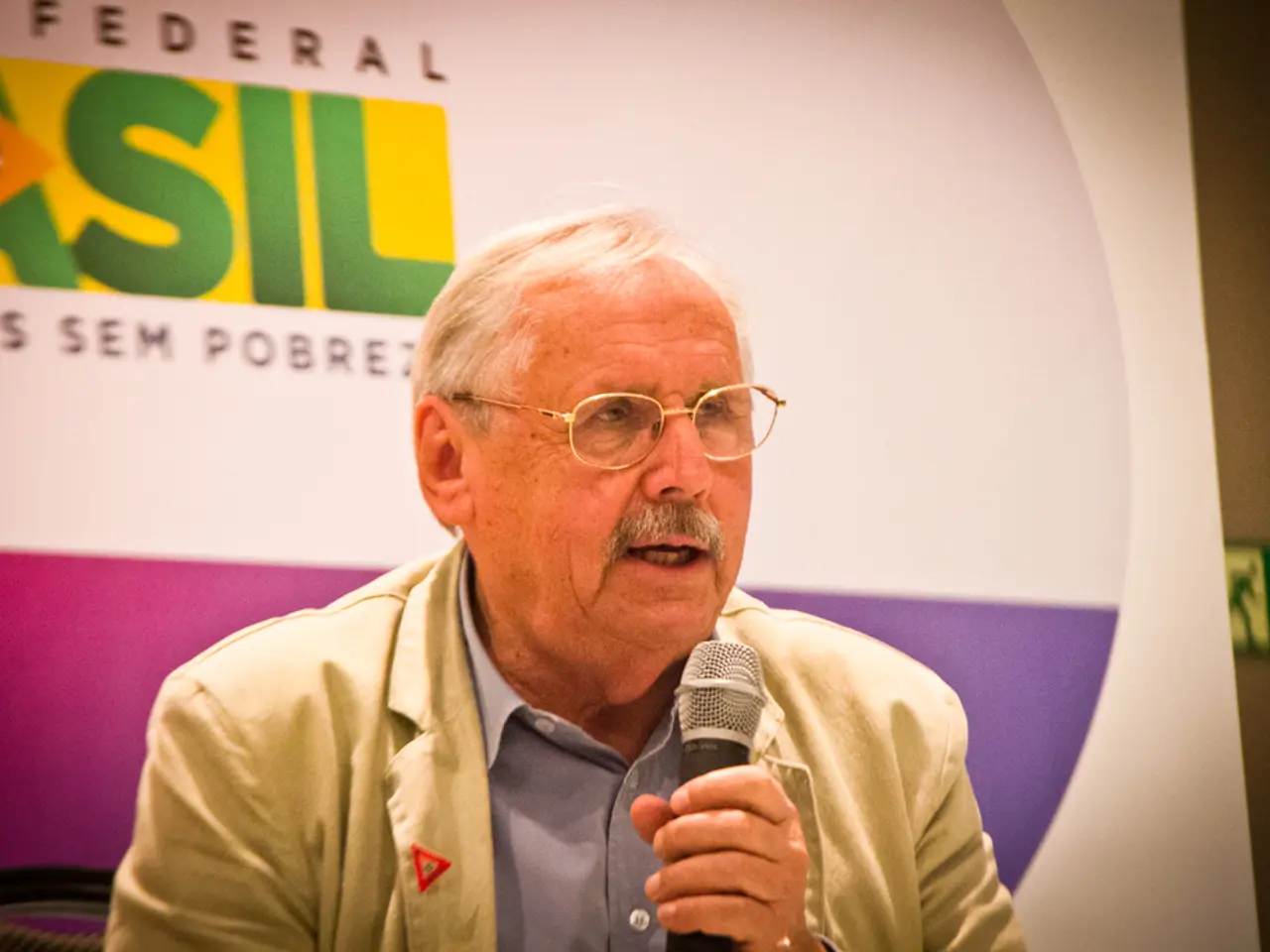Presidential contenders embark on their journey in the Iowa caucus, laying the foundation for their pursuit of the White House.
In the bustling landscape of the 2020 Democratic primary, Iowa continues to hold a significant position, despite being a predominantly white state and a major agricultural powerhouse. This Midwest state, often referred to as a "flyover" state, has historically wielded influence due to its traditional role as the first state to hold caucuses during the nominating calendar.
Iowa's caucus system, established decades ago, demands that candidates engage directly with voters early and intensively. This early contest has often shaped campaign narratives and media coverage, acting as a bellwether for candidate appeal and grassroots support, providing important momentum heading into subsequent primaries.
However, recent developments indicate a shift. Iowa has lost its "first-in-the-nation" caucus status for the 2024 cycle, and the Democratic National Committee (DNC) has removed Iowa’s seat on the influential Rules and Bylaws Committee, signalling a decline in its influence within the Democratic Party. This move reflects broader concerns about Iowa's demographic makeup and its representativeness of the diverse Democratic electorate nationally. The party has been reevaluating its nominating calendar to better reflect the diversity of its voters, with states like New Hampshire, Nevada, and South Carolina gaining prominence.
Despite this, Iowa remains politically important due to its competitive statewide races and mixed political dynamics, including vulnerable Republican seats and energized Democratic grassroots efforts. Iowa's caucus tradition has given it leverage in national politics because it demands retail politics and grassroots engagement, influencing candidate strategies nationwide.
Campaigning in Iowa often involves close, personal interactions in various locations such as barbecues, homes, cafes, fairs, gyms, and sports fields. Voting in the Caucus takes place in assemblies where participants group by their favourite candidate. Presidential candidates often visit Iowa multiple times to win over voters.
As of the current polls, four septuagenarian white candidates lead: Joe Biden, Bernie Sanders, Elizabeth Warren, Michael Bloomberg, and Pete Buttigieg, who at 38 years old, is the youngest of the leading candidates. In 2019, CNN has partnered with the Des Moines Register to conduct polls. Campaigning in Iowa involves opening offices, hiring staff and volunteers, bringing in experts, and flooding the state with advertising.
The candidate chosen in Iowa has often ended up being the Democratic nominee in the last twenty years, with notable figures such as Al Gore, John Kerry, Hillary Clinton, and Barack Obama emerging victorious from the Iowa caucuses. Caucus participants are registered voters who have identified as Democratic supporters.
The Des Moines Register gains national relevance during the primaries, and major news media outlets send teams to Iowa to cover the news. The Caucus is the assembly mode for the Democratic Party primaries in Iowa. The Iowa caucus system, despite facing challenges, continues to play a crucial role in the Democratic primary process, shaping candidate strategies and providing a vital launching pad for the presidential race.
- In the midst of the 2020 Democratic primary race, Iowa maintains a significant standing, despite being a predominantly white state and a major agricultural powerhouse.
- Known as a "flyover" state, Iowa has traditionally wielded influence as the first state to hold caucuses during the nominating calendar.
- The caucus system in Iowa, established decades ago, requires candidates to engage directly with voters early and intensively.
- This early contest often shapes campaign narratives and media coverage, acting as a bellwether for candidate appeal and grassroots support.
- However, Iowa's "first-in-the-nation" caucus status for the 2024 cycle has been revoked, and the DNC has removed Iowa’s seat on the Rules and Bylaws Committee, signaling a decline in its influence within the Democratic Party.
- This move reflects broader concerns about Iowa's demographic makeup and its representativeness of the diverse Democratic electorate nationally.
- The party has been reevaluating its nominating calendar to better reflect the diversity of its voters, with states like New Hampshire, Nevada, and South Carolina gaining prominence.
- Despite this, Iowa remains politically important due to its competitive statewide races and mixed political dynamics.
- Iowa's caucus tradition has given it leverage in national politics because it demands retail politics and grassroots engagement, influencing candidate strategies nationwide.
- Campaigning in Iowa often involves close, personal interactions in various locations such as barbecues, homes, cafes, fairs, gyms, and sports fields.
- Voting in the Caucus takes place in assemblies where participants group by their favorite candidate.
- Presidential candidates often visit Iowa multiple times to win over voters.
- As of the current polls, four septuagenarian white candidates lead: Joe Biden, Bernie Sanders, Elizabeth Warren, Michael Bloomberg, and Pete Buttigieg, who at 38 years old, is the youngest of the leading candidates.
- In 2019, CNN has partnered with the Des Moines Register to conduct polls.
- Campaigning in Iowa involves opening offices, hiring staff and volunteers, bringing in experts, and flooding the state with advertising.
- The candidate chosen in Iowa has often ended up being the Democratic nominee in the last twenty years, with notable figures such as Al Gore, John Kerry, Hillary Clinton, and Barack Obama emerging victorious from the Iowa caucuses.
- Caucus participants are registered voters who have identified as Democratic supporters.
- The Des Moines Register gains national relevance during the primaries, and major news media outlets send teams to Iowa to cover the news.
- The Caucus is the assembly mode for the Democratic Party primaries in Iowa.
- The Iowa caucus system, despite facing challenges, continues to play a crucial role in the Democratic primary process, shaping candidate strategies and providing a vital launching pad for the presidential race.
- In the realm of education and self-development, online education has become a popular and productive avenue for learning, particularly in the context of personal growth and career development.
- Mindfulness, a practice aimed at maintaining a non-judgmental state of awareness, has been integrated into various aspects of life, including learning, goal-setting, and lifelong learning, promoting productivity and skills training.








